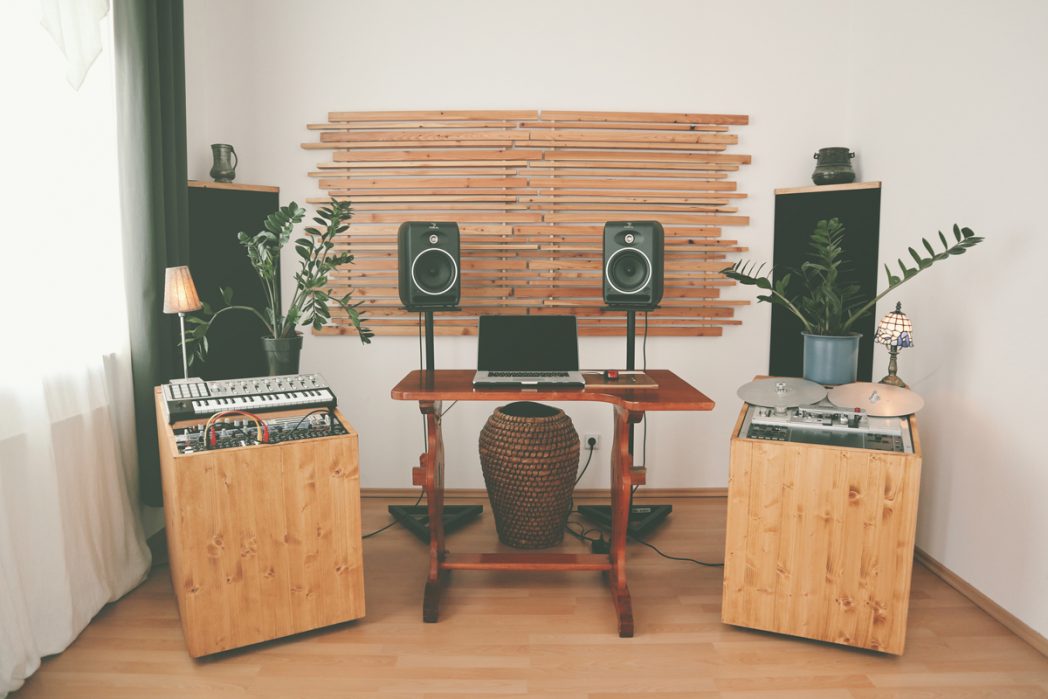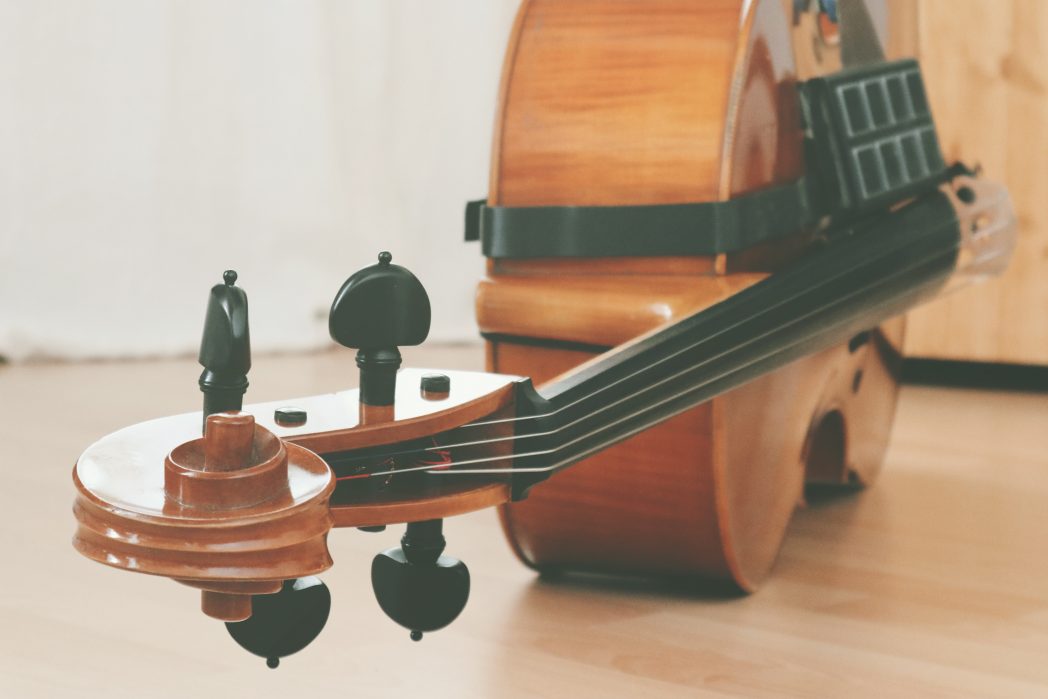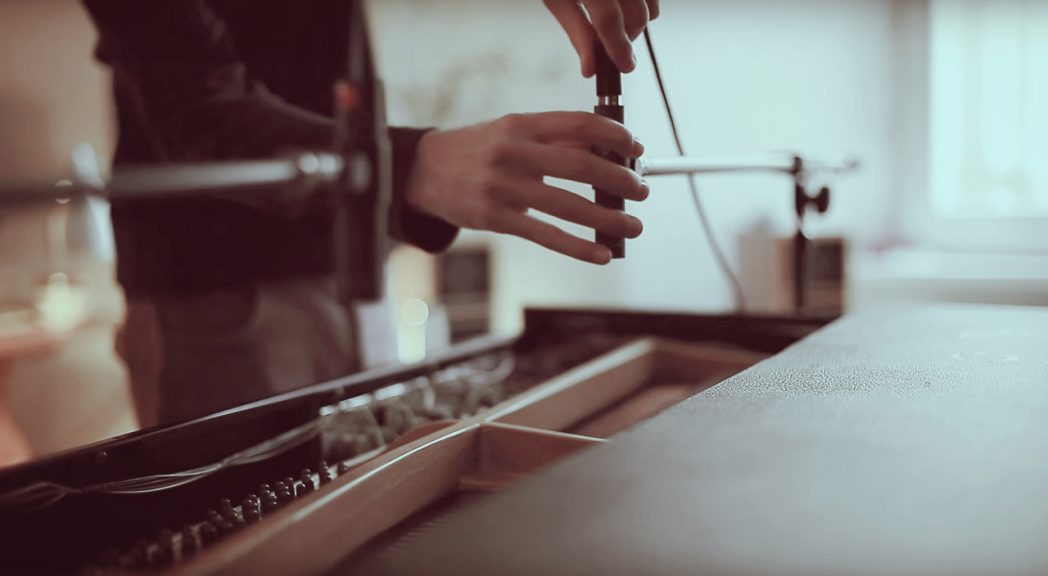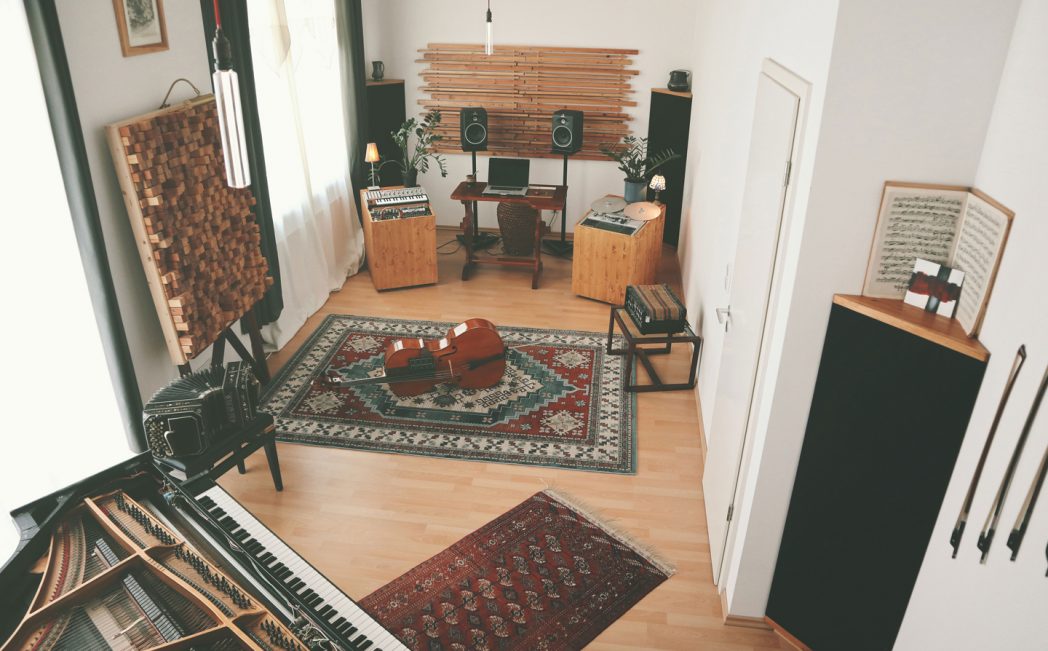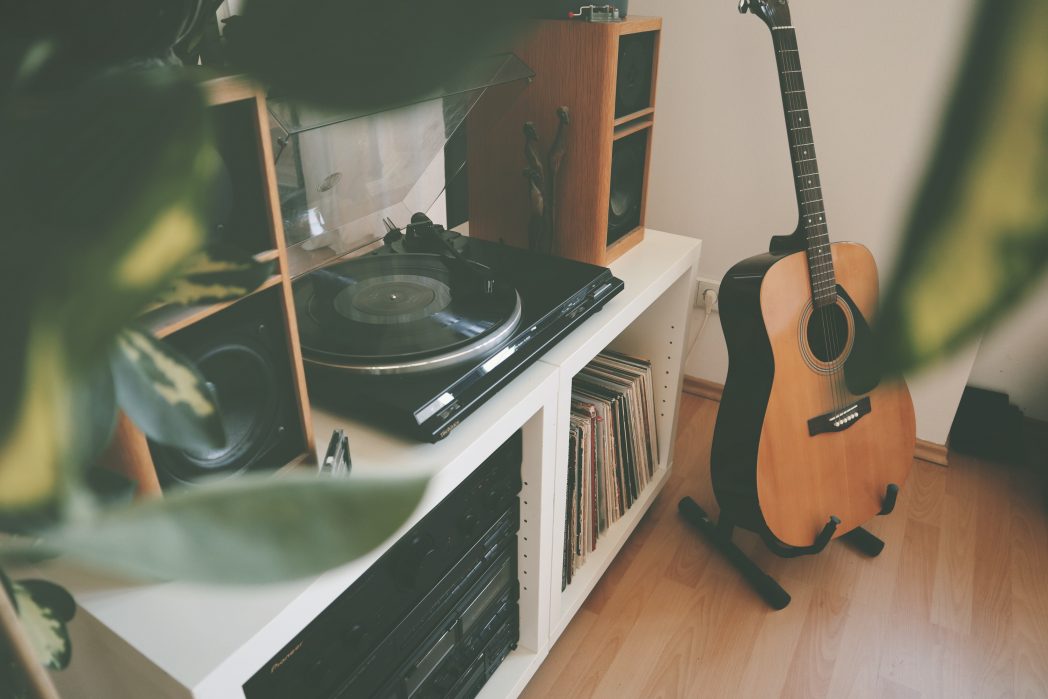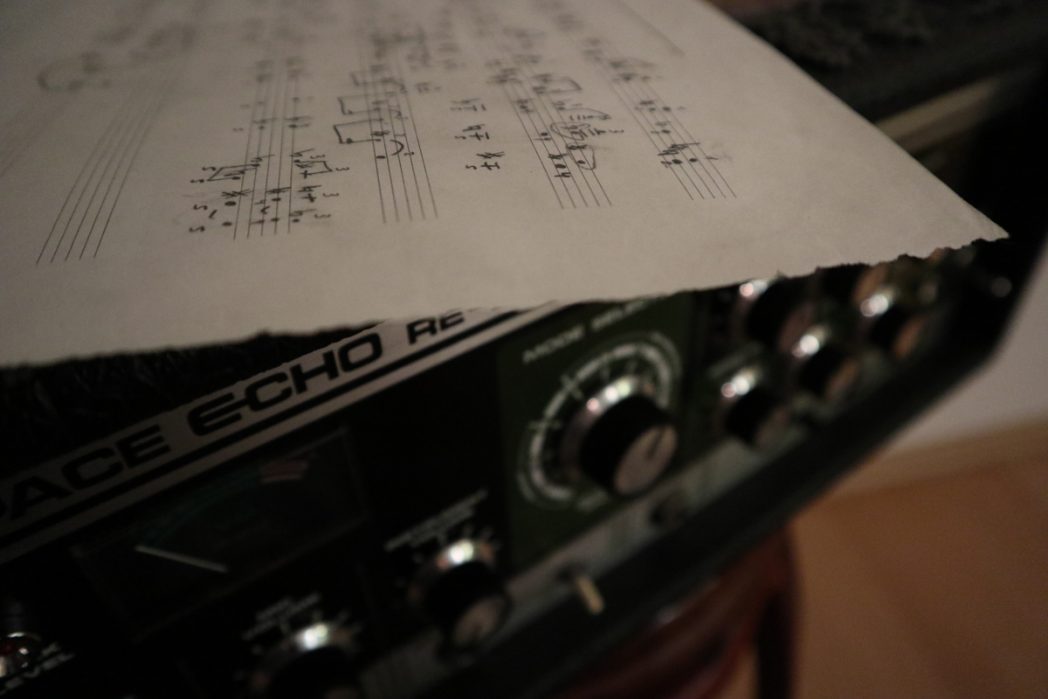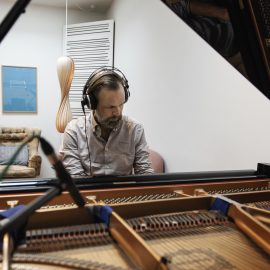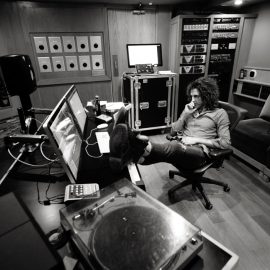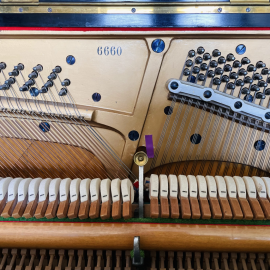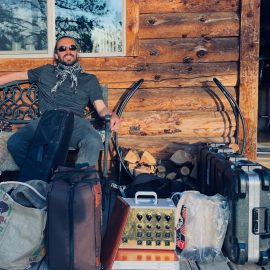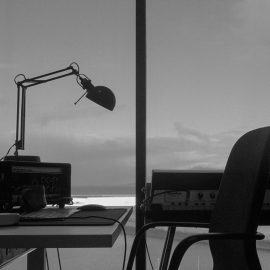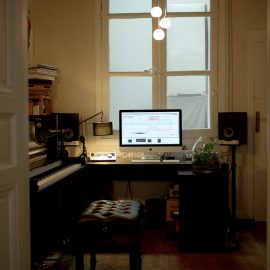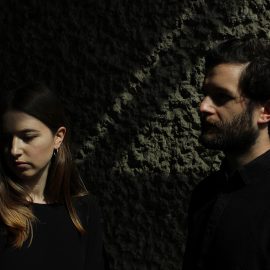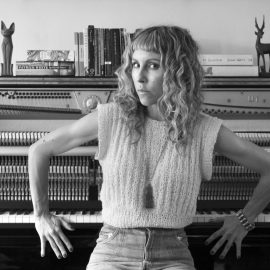Let’s start at the very beginning. Can you tell us how you got involved in composing, and what was your very first piece of gear?
My first piece of gear was a cello when I was 7 years old. My grandpa bought it and kept it until I had a good age to put my hands on it. Writing music came very naturally at the age of 12, both of my parents and my sister are musicians so I was really lucky to have a string quartet available at home. I then started writing small pieces for duos, trios, and quartets, pieces which I would then print out and play them with my family. Seeing these pieces come to life was fascinating!
How many different studio iterations have you gone through, and what does your final setup look like right now?
Since I left Argentina at age 17, I’ve lived in 4 other countries so I went through several studio iterations. During these years I’d say my studio was basically the practice rooms from the conservatories where a cello, a piano, sheet paper, and pencil would suffice. Later, I would start to gear up and have a studio at home. At the moment, I have a studio built on the top floor above my apartment with a spiral staircase connecting the two levels. Luckily, this allows me the freedom of speech at anytime day or night without inflicting on my neighbors’ nerves!
Tell us about your favorite piece of hardware.
It is definitely my Yamaha CP-80 Electric Grand, it was love first sight when I first came to see it in 2012 in San Francisco. Not only has a beautiful acoustic tone but it also allows an endless palette of possibilities with its electric line-out. I find there is something truly special in its acoustic tone, being very delicate and full at the same time. And one should not leave aside the fact that it’s tremendously sexy looking.
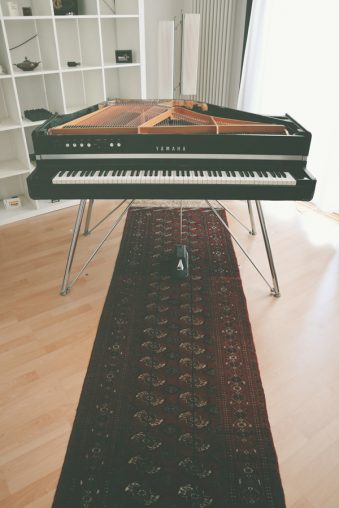
And what about the software that you use for production?
I use Logic for production and Ableton Live mostly for live settings.
Is there a particular piece of gear that you’re just dying to get your hands on and do you think one day you’ll have it?
I don’t have one, to be honest, I’m always dying to put my hands on the ones I already have! However, I would not deny that playing on one of the best cellos ever made such as Stradivarius, Amati or Montagnana would be incredible, just because of the life and history these instruments carry with it. I had chances to play on these cellos and there is indeed magic in their sound. And to respond to the last bit, I’m not quite sure I may be able to acquire one of these one days…
Can you please share some aspects of sound design in your work?
In my work, the recording tone quality and texture take equal importance as the composition itself. The tone, timbre, and nerve in the playing do take an essential part, I think that’s ultimately what brings the music alive. I record all the instruments in my records, this allows me to experiment a lot with sound and exploring extended techniques on the instruments as well. Music is much more than just nice sounds, the character and emotion in the playing are critical for music to be at its fullest expression.
Any particular new techniques that you tried out for your new album?
Yes, on my next record I am experimenting a lot with my voice and treating it in many different ways. I’m also restraining myself to making the entire album with just cello, piano and voice. My purpose is to narrow things down to only my main instruments and see how far I can go creating chamber music by myself.
What does your live setup look like, and what do you bring with you when you travel for an extensive tour?
Currently, my live set up is based on cello and electronics. I have a set of pads built in my acoustic cello which allows me a range of possibilities when playing live. Besides the cello, I am also bringing a Korg MicroKontrol to control all of the rest of the instrumentation around the set, and a foot controller.
What is the most important environmental aspect of your current workspace and what would be a particular element that you would improve on?
It is definitely the fact that I can make noise at any time during day or night. Having the possibility to work at any time in the middle of Berlin is definitely a lucky card. I’ve also custom-made all of the furniture and acoustic panels in the studio together with a woodworker friend of mine, this brings special value to things around. In terms of improvements, having a studio outside of the city allowing a natural surrounding is really important and certainly a step I’m moving towards to.
What can you tell us about your overall process of composition? How are the ideas born, where do they mature, and when do they finally see the light?
In general, it all depends on each work, from the starting point, and throughout the process until the work is completed. Normally a new idea would come on the cello or piano, I then record each instrument layer by layer and mix these on top of each other, it’s like making chamber music bit by bit. Recording all the instruments myself allows me to experiment with sound and performance. Lastly, I feel what’s very important is to understand what the new composition needs and surely go ahead with destroying and deconstructing ideas. I believe music must say something (at least that’s what I’m looking for when listening to new music), I consider a new piece is finished when a message is conceived.
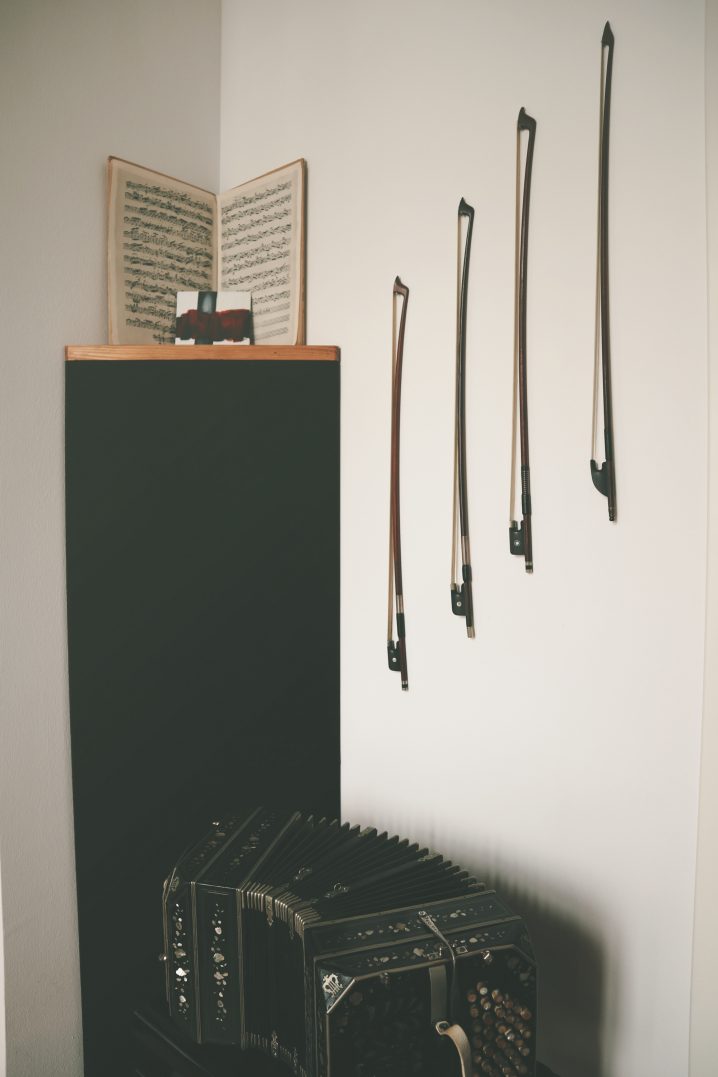
After the piece is complete, how do you audition the results? What are your reactions to hearing your music in a different context, setting, or a sound system?
Regarding the sound, it’s literally impossible to have one mix sounding its best in all playing devices. I trust the best sounding results I achieve in my studio and I go from there.
Do you ever procrastinate? If so, what do you usually find yourself doing during those times?
Not really, I tend to spend lots of time working in the studio, however, I find it’s as important to use leisure time to do all other things one enjoys, such as cooking for example. Although, I admit procrastination may trigger on me in regards to other duties away from music-making. So basically if you don’t find me in the studio I’m down in the kitchen!
What gets you inspired?
Writing music has become a need. For me, its basically a medium to course through life, think of like photosynthesis for instance. There is a vast world within our unconscious mind and I believe inspiration lives there, then it just comes when you let go.
And finally, what are your thoughts on the state of “electronic music” today?
There are a vast amount of great electronic records out there today, I think coding has become so accessible today providing us with huge scope to experiment with sound, it’s a tool that can really expand your imagination and we see it very present especially in electronic music these days.
